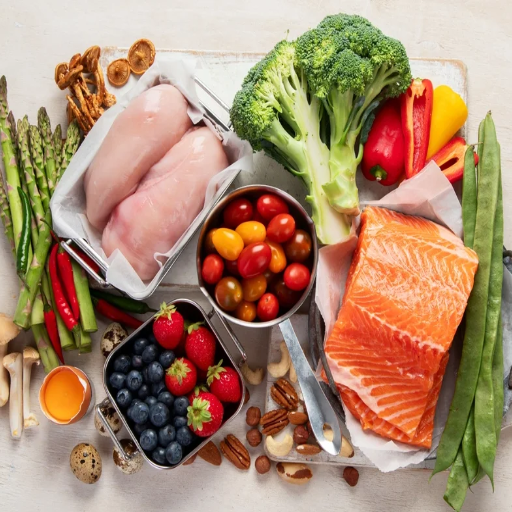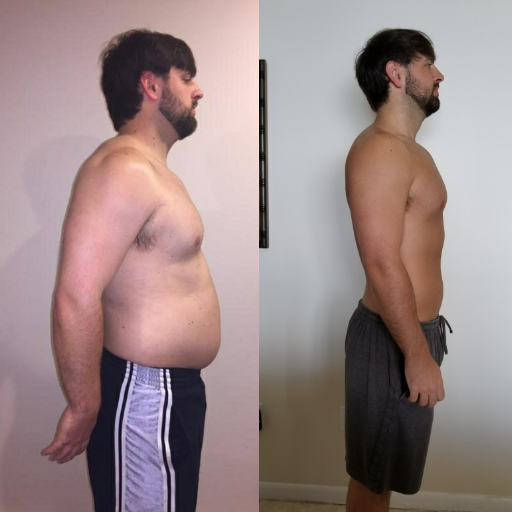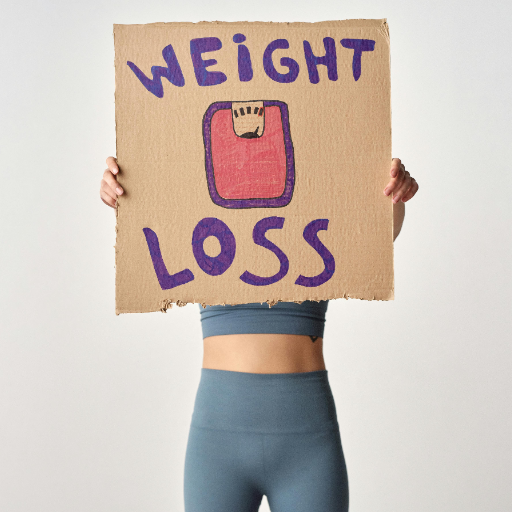Achieving weight loss efficiently poses a challenge, especially one that needs planning and proven methods. This article is a purposive guide to help you achieve your desired outcomes and, at the same time, stay healthy. To make optimal changes to suit your needs, this guide considers lifestyle, nutrition, exercise, and advanced technology. These strategies have become more effective, enabling you to lose 15 pounds without causing any harm to your body but invoking severe discipline in dieting and workouts. With the proper strategy set in mind, rest assuring it is sustainable over a prolonged period while ‘jump starting’ your fitness goals.
What are the most effective rapid weight loss strategies for 2025?

High Muscle Protein Diets and Fast Fat Burn Diets
As per my analysis, incorporating a high protein intake in your nutrition is one of the effective techniques to lose weight in a short period in 2025. Such techniques work best because they render increased satiation, increased metabolism using the food thermic effect, and body retention in muscle mass while on calorie-restriction diets. The intake of lean proteins like chicken, fish, and eggs, as well as plant sources of protein like tofu, work for fat loss and overall health. In addition, some studies further confirm that it’s best to spread protein intake evenly throughout the day because this maximizes these benefits, which is the basis for permanent weight loss and dieting management.
Intermittent Fasting: A Proven Strategy with Quick Results
Intermittent fasting has helped me personally in achieving weight and nutrition goals. By alternating eating and fasting slots, I have been able to better control insulin levels, easy fat burn, and simplify my daily life activities. The 16/8 method, where I fast for 16 hours and eat within an 8-hour window, is pretty easy and is beneficial. Also, studies have identified the ability of intermittent fasting to help reduce inflammation and maintain metabolic health, which I also observed myself. You have to stay hydrated and eat more during the eating windows.
Using technology to enhance weight management in 2025
Using technology to enhance weight management in 2025 has greatly benefited me. With new applications and smart wearables, I can now receive live feedback on my movement, calorie consumption, and even my sleep, allowing me to precisely manage my health and wellness. AI-infused healthcare platforms now create meal plans and fitness programs that are ideal for my needs and goals, while virtual coaching ensures the expertise of professionals is only a click away. Incorporating these aids in my regimen has helped me track my progress effectively, allowing me to stay on course with my weight management endeavors.
How can I lose weight quickly without compromising my health?

Achieving very low body fat while maintaining long-term sustainability of weight loss goals.
While aiming for rapid fat reduction, I make sure to stay at a healthy equilibrium by creating a calorie gap. This ensures I eat nutrient-rich food, exercise regularly, and stay sufficiently active. Lean proteins, healthy fat, and complex carbs are key to the diet to ensure proper energy maintenance and overall health support. I incorporate strength training and HIIT as focal parts of my fitness regime for efficient calorie burning and muscle retention. Furthermore, I hydrate, sleep, and manage stress levels so I don’t stunt my development. Rather than adopting extreme dieting and other terrible unsustainable practices, I focus on gradual enhancement to ensure my development is long-lasting.
Incorporating healthy grains and fats into your diet.
I incorporate whole grains and heart-healthy unsaturated fats into my diet by focusing on meals that combine these ingredients while providing sustained energy and other essential nutrients. Whole grains: quinoa, oats, brown rice, and whole-grain bread are my go-to foods because they are all high in fiber, which significantly aids in digestion as well as blood sugar regulation. Healthy Fats: avocados, nuts, seeds, and olive oil support heart health, providing long-lasting satiety. Eating adequate portions alongside lean proteins and vegetables creates a well-balanced and fulfilling diet.
How Exercise Helps With Rapid Weight Loss Programs
Exercise increases the effectiveness of fast weight loss programs by increasing calorie burns, leveling up belly metabolism, and maintaining muscle while losing fat tissues. In my practice and research activities, the most effective are high-intensity interval training (HIIT) and some progressive resistance exercises because they increase energy expenditure and lose weight while retaining strength. Cardio exercises like running, jogging, or cycling will also help lose weight, and everything else will be equal because of these high-calorie burning. Attaching exercises with a good meal plan is very important for long term effect obtainable. Consistency and a structured framework aligned with individual goals are the main factors of effectiveness.
What are the best diets for rapid weight loss in 2025?

The Mediterranean diet is an age-old practice for managing weight and a healthy lifestyle.
As per my findings, the Mediterranean diet is one of the most effective weight management models. The diet emphasizes the consumption of whole foods that are dense in nutrients. People who follow this diet eat vegetables, fruits, whole grains, nuts, seeds, lean meats, and healthy fats, particularly olive oil. This ‘diet’ as with many other Mediterranean cultures, is highly recommended because it provides many health benefits in the long run including better cardiovascular health and less inflammation in the body. It works for weight loss because its macronutrients composition is balanced. This, along with high fiber and low calorie foods helps setting natural caloric deficit and that’s why the measures for restriction do not have to be strict or harsh. The key to this overall wellness and weight loss is regular exercise along with the Mediterranean diet that most people don’t believe. But the truth is, decades worth of scientific evidence backs this.
Ketogenic diet: Is this the fastest option for weight loss?
Fast weight loss is possible with the aid of a ketogenic diet. This is based on the information sourced from several sites. These results may be due to it’s high-fat, low carbohydrate dietary framework. This puts the body in a state of ketosis, where fat is used for energy instead of carbs. Note, this is very different from dieting for weight loss which has a low-fat and high-carb dietary framework. Dieting for weight loss leads to burning excess fat over a longer period of time. It is essential to highlight that both methods are equally viable. In addition to that, movements towards a long-term solution for fitness are very much encouraged. This includes exercising regularly.
Eating Habbits: Weight Losing And Healthy, Plant-Based Meals
Speaking from my research, plant-based nutrition is optimal for weight management because it is rich in fibrous food, has a low-caloric intake and a high intake of fruits, vegetables, legumes, and whole grains. Along with the benefits of weight loss and improving heart health, reducing inflammation, and aiding in weight management are all other advantages of a plant-based diet. Nevertheless, following a plant-based dietary pattern may require one to ensure proper intake of important nutrients like B12, iron, and omega-3 fatty acids, which are typically scarce in a plant-based diet.
How can I stay on track with my weight loss plan and see fast results?

How to set effective goals to lose weight in the long run
It is most likely that I will achieve the desired weight and remain in that weight for a very long time if I set SMART goals – specific, measurable, attainable, realistic and time bound. What works for me is losing 1-2 pounds in a week. This is a great pace and health specialists would agree with me. My first step is calculating my daily calorie intake and then I create a small caloric deficit by consuming a balanced diet and exercising. Instead of losing weight quickly, I prefer to track my consistency and make adjustments to my behavior where appropriate such as celebrating small achievements. Lastly, I tell myself that there is no rush when trying to lose weight. It is a lifestyle change that takes a while to get accustomed to.
How Ilost My Weight Using Apps and Wearables
App and wearable technologies assist me to achieve and track my weight loss targets. For instance, I use calorie-counting apps to log my meals and I make sure that I am in a caloric deficit. With wearable technology, I am able to monitor my steps, heart rate, and active minutes to evaluate my level of activity. In addition to that, some of these platforms assist me with sleep tracking alongside my fitness trends, providing me with useful information to make changes in my routine. Incorporating this technology into my daily routine ensures that I remain accountable while giving me useful feedback for effective optimization of my endeavors.
The significance of accountability in achieving rapid results.
In fitness and lifestyle management, this is often one of the most important factors. Based on the most relevant information, they argue that progress should be done in such a way that it can be quantified and evaluated periodically so that it is apparent whether or not one is stuck. For instance, MyFitnessPal places a high priority on entering whole and accurate records of calorie consumption and how calories are dispensed among the macronutrients so that there is a constant deficit balance for calories consumed. In the same fashion, WHOOP and Fitbit emphasize the point that heart rate variability (HRV), resting heart rate (RHR), and sleep efficiency should be the main control variables of recovery and performance readiness.
- HRV (Heart Rate Variability): Higher values mean better recovery, but optimal levels vary from person to person. What matters is that they increase over time.
- RHR (Resting Heart Rate): Lower RHR is usually a sign of better cardiovascular fitness. It’s a good sign when this measure is consistent.
- Sleep Metrics: The percentage of REM and deep sleep need to be monitored and compared to the amount of physical work done to assure that I am recovering adequately.
With this data driven strategy, I can monitor my progress and obtain results with great efficiency due to the trusted procedures. Relying on the aforementioned technical perspective and embedding them in my accountability framework means that I can stick to a regimented and very efficient schedule.
How can I lose weight fast without losing muscle mass?

The role of lean protein in muscle retention during fast weight loss processes
During rapid weight loss, lean protein is particularly important for muscle mass preservation, as it has the necessary amino acids to curtail muscle deterioration. From my point of view, present in every recipe high quality proteins like chicken breast, fish, eggs, and even plant based proteins, help in building and repairing muscles. Moreover, consuming the recommended 1.6 to 2.2 grams of protein per kilogram of body weight on a daily basis facilitates the body to have enough resources to maintain muscle tissue while on a calorie deficit. It is also important to note that adequate protein intake combined with resistance training will further reduce muscle loss and make fat loss more efficient and manageable.
Resistance training: An important aspect of one’s weight loss program
According to the studies I have carried, the actual reason why training with resistance forms part of the best weight loss programs is that it allows for a leaner body composition while losing weight. These can be in the forms of weight lifting, bodyweight or resistance exercises that improve one’s metabolism during and after the workout as one’s muscles need energy to recuperate. A number of studies have tried this and many do agree that resistance training during a caloric deficit has beneficial effects on muscle preservation, body composition, and subsequent strength performance. This not only aids in losing weight at a faster rate, but makes sure all the benefits that come from muscle tissues and metabolism are not lost, even in the long term.
Balancing aerobic exercise and strength training in order to maximize fat loss
Achieving balanced cardio and strength training for fat loss is not effortless. As I’ve learned, moderate cardio should be done 3-4 times per week while 2-3 times per week dedicated resistance training should be performed to keep the lean muscle active. I make sure that my cardio includes running or cycling, and my strength sessions comprise compound moves like squats and deadlifts. Combining these elements followed by adequate rest provides me with the balance needed to enhance fat loss and body composition while ensuring sustainable metabolic health.
What strategies can help me maintain my weight loss after achieving quick results?

Here’s how I switch from shedding pounds quickly to keeping them off for good:
I focus on routine building and habit formation. I optimistic portion control, so whole foods like vegetables, lean proteins, and healthy fats are a priority. I also mix strength training with cardio since I plan on maintaining my weight and that means staying active. Of course, too much is bad so I have periods when I rest as well. Staying hydrated, managing stress, and sleeping well are equally as important. With these steps in place, I am able to maintain my results without reverting to my old ways.
Building good habits for successful results
As a result, I prioritize healthy meal strategies, eating habits, and exercise regimens. To prevent my diet from being energy deficient, I make sure to eat unprocessed foods. Logging progress in journals or applications helps me track my work and gives my work effort meaning. Furthermore, I practice stress management using meditation and I focus on the adequate amount of restorative sleep to ensure my body functions at an optimal level. I have integrated my changes into my lifestyle so I can enjoy my achievements and never feel restricted.
Understanding diet and exercise in its comprehensive aspect
A combined approach to diet and fitness is core to achieving health and wellbeing goals which are possible to sustain for long periods. To make sure my body works properly, I combine healthy foods and active lifestyles, so I can get the energy and nutrients my body needs. I do not follow rigid dieting or strict exercise regimes. Rather, I prefer to remain consistent and flexible, optimizing my diet and exercise to suit my lifestyle. This balance helps me avoid burnout, supports long-term progress, and fosters a positive relationship with food and fitness.
Reference sources
Frequently Asked Questions (FAQs)

Q: What are the most effective ways to lose weight in 2025?
A: In 2025, the most effective ways to lose weight include following a balanced diet plan that focuses on whole foods, incorporating regular exercise, practicing intermittent fasting, and considering medical weight loss options if necessary. These strategies, combined with lifestyle changes, can help you achieve significant fat loss while preserving muscle mass.
Q: How can I ensure weight loss success in the long term?
A: To ensure long-term weight loss success, it’s important to adopt sustainable habits rather than relying on quick fixes. Focus on developing a healthy relationship with food, staying consistent with your exercise routine, and making lifestyle changes that you can maintain over time. Additionally, regularly tracking your progress and adjusting your approach as needed can help you stay motivated and achieve your weight loss goals.
Q: What role does diet and nutrition play in fast weight loss?
A: Diet plays a crucial role in fast weight loss. A well-balanced diet emphasizes whole foods, lean proteins, fruits, vegetables, and healthy fats while limiting processed foods and added sugars. Proper nutrition helps create a calorie deficit, which is essential for weight loss. Additionally, certain diets like the Mediterranean or plant-based diets can provide the nutrients your body needs while promoting weight loss.
Q: Are there any new weight loss medications available in 2025?
A: As of 2025, there are several new weight loss medications available that can help accelerate weight loss when combined with diet and exercise. These medications work by suppressing appetite, increasing metabolism, or reducing fat absorption. However, it’s important to consult with a healthcare professional before starting any weight loss medication, as they may have side effects and are not suitable for everyone.
Q: How can intermittent fasting help with rapid weight loss?
A: Intermittent fasting, which involves alternating periods of eating and fasting, can lead to rapid weight loss by reducing overall calorie intake and improving insulin sensitivity. This approach to weight loss can help you consume fewer calories while still allowing you to enjoy satisfying meals during your eating windows. However, it’s important to ensure you’re still getting adequate nutrition during your eating periods.
Q: Why is it harder to lose weight as we age, and what can be done about it?
A: It becomes harder to lose weight as we age due to factors like decreased metabolism, loss of muscle mass, and hormonal changes. To combat this, focus on strength training to build and maintain muscle, increase your protein intake, and stay consistent with your diet and exercise routine. Additionally, getting enough sleep and managing stress can help support your weight loss efforts as you age.
Q: What are some strategies to maintain a healthy weight after losing it?
A: To maintain a healthy weight after losing it, continue practicing the habits that helped you lose weight initially. This includes staying active, eating a balanced diet, and monitoring your portion sizes. Regular weigh-ins can help you stay accountable, and having a support system can provide motivation. If you start to regain weight, address it quickly by adjusting your diet and increasing your physical activity.
Q: How much weight is safe to lose in a week?
A: A safe and sustainable rate of weight loss is typically 1-2 pounds per week. While it’s possible to lose weight more quickly, especially in the beginning stages of a diet, losing weight too rapidly can lead to muscle loss, nutrient deficiencies, and other health issues. It’s important to focus on long-term results rather than quick fixes, as gradual weight loss is more likely to be maintained over time.











